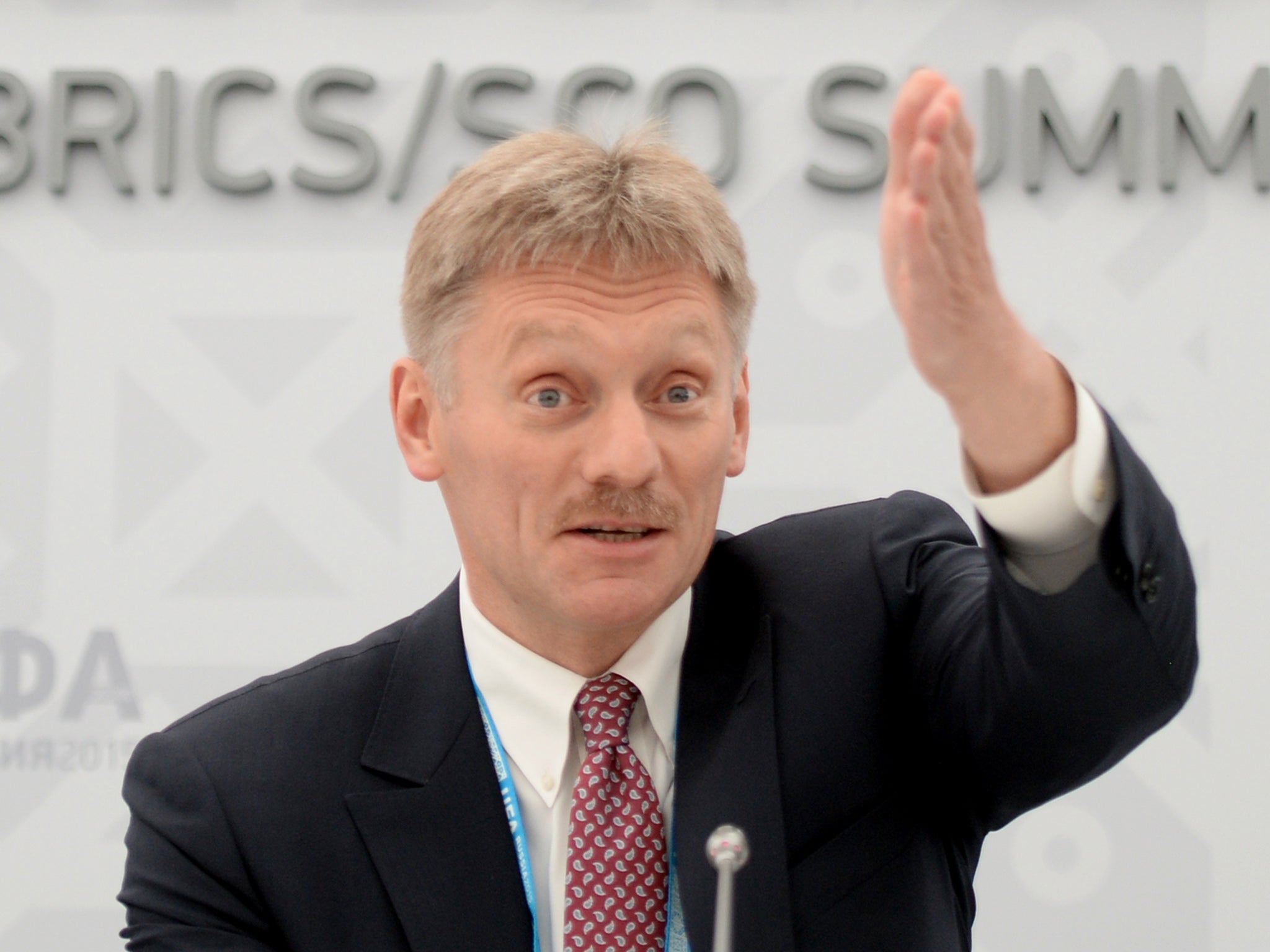Vladimir Putin’s spokesman says ‘emotional extremism' is harming US-Russian relations
Dmitry Peskov said allegations that Russia hacked the US election are false and 'hysteria' within Washington and the media were causing damage

A spokesman for Russian President Vladimir Putin has denied allegations that Russia co-ordinated with the Trump campaign and that "hysteria" in Washington DC and in the American media is harming their relationship.
Dmitry Peskov told CNN that it was "high time for someone in the States to think, ‘Are we that weak that a country can interfere in our domestic affairs and influence our electoral system?'"
"This is unimaginable and someone has to say — all this is not true. We have to be sober, let's come to our minds," Mr Peskov said.
He added that Russians had no wish to interfere and that Russia wanted a relationship with a stable government, what he called a “predictable partner”.
"It is emotional extremism, of trying to make a toxic country out of Russia, to make a toxic ... ambassador out of Russia's ambassador," he said.
Russian ambassador Sergey Kislyak reportedly spoke and met with several members of Donald Trump’s transition team, including former national security adviser Michael Flynn and Attorney General Jeff Sessions, who denied such a conversation at his senate confirmation hearing.

Mr Sessions was consequently forced to recuse himself from overseeing the federal inquiry into Russsia’s alleged interference in the US election and its possible links to members of Mr Trump’s team.
Former Trump adviser Jeffrey Gordon told The Independent that he met with the ambassador five months before the election to discuss how Moscow and Washington could work together to tackle Islamic extremism if Mr Trump was elected.
Following reports from the FBI and CIA that Russia had exerted a campaign of influence upon the US Presidential election, giving a boost to Mr Trump, former President Barack Obama made unprecedented moves against Russia, including expelling 35 diplomats and imposing sanctions.
Mr Kislyak reportedly spoke with Trump aides around this time, seeking to be reassured that the sanctions would be overturned.
The President’s son-in-law, Jared Kushner, also met with him in December to establish contacts with the Russian government.
Join our commenting forum
Join thought-provoking conversations, follow other Independent readers and see their replies
Comments
Bookmark popover
Removed from bookmarks